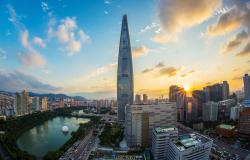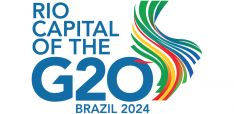When Old Wounds Reopen: Martial Law, Impeachment, and South Korea's Challenge Ahead

Bright Lee explores how South Korea's past experiences with martial law and presidential impeachment shaped its citizens' and politicians' response to its latest political crisis.
In 2023, South Korean audiences flocked to theaters to watch 12.12: The Day, a historical drama that became the year's biggest box office hit. The film revisited a pivotal moment in Korean history: the dark days of 1979 when, following the assassination of President Park Chung Hee by his close aide, military forces again seized control of the nation through a lightning-fast coup under the cover of martial law, dragging the country back into the shadows of dictatorship. When the Korean Film Council submitted it as South Korea's entry for the Academy Awards, the judges noted that "the film's portrayal of the illusion of charisma and the satire of evil will resonate as a timely metaphor."
In December 2024, that warning ceased to be a metaphor when President Yoon Suk-yeol declared martial law and attempted to arrest members of parliament. While this coup failed unlike its historical predecessors, the ruling party, dreading the loss of power, blocked the subsequent impeachment measure against the president by boycotting the vote.
This crisis has prompted questions worldwide. How did South Korean citizens mobilize so rapidly after the martial law declaration, and how did parliamentarians manage to nullify it so swiftly? Why did many ruling party members who voted to lift martial law then turn around and oppose impeachment? To understand these perplexing questions beyond surface-level analysis, one must grasp Korea's broader narrative: a dynamic success story that the nation itself calls miraculous, and within it, the profound symbolism that martial law and presidential impeachment carry in South Korean society.
Modern South Korean history transcends partisan divides. When President Yoon declared before a joint meeting of the US Congress that "Once a recipient of aid, Korea is the only nation in modern history to become a donor," he echoed the words of his predecessor and political adversary, President Moon Jae-in. This shared narrative centers on 'The Miracle on the Han River' – the transformation of one of the world's poorest countries in 1953 into a nation that, within just 50 years, achieved both remarkable industrialization led by government technocrats, and genuine democratization driven by citizens.
Yet this dual achievement also breeds deep political tensions, as these two forces — development and democracy — often found themselves in direct conflict. As National Assembly Speaker Woo Won-shik reminded the ruling party during their impeachment boycott, "The Republic of Korea is a democracy that's made of people's blood and tears." The dictatorial governments of the past routinely justified their suppression of political opposition and civil rights by invoking North Korean threats and the imperative of uninterrupted economic growth.
Martial law became their tool of choice, serving not its intended purpose but rather as an instrument to crush democratic protests (1960, 1964) and facilitate three coup d'états (1961, 1972, 1979-80). Under its cold shadow, citizens were trampled by soldiers' boots and tortured by police, yet they continued to march for democracy, often to their deaths. Until the June Struggle of 1987 finally secured the right to elect presidents directly, the Gwangju uprising of May 1980 – where the military shot its own citizens under martial law – remained an unspeakable tragedy. In Korea, martial law thus emerged as not merely a legal provision, but a deep scar in the nation's psyche. This historical trauma explains why countless citizens immediately rushed to the National Assembly the moment martial law was declared, forming human barriers against military forces to buy time for parliamentarians to nullify the decree.
There seems to be a consensus that the president made an incomprehensibly grave decision due to his inclination toward alt-right media. However, the aftermath is now unfolding another layer of trauma, manifesting in the conservative People Power Party's puzzling decision to block the impeachment vote. Three South Korean presidents have now been the subject of impeachment attempts from the Congress, each proving catastrophic for its conservative bloc. In 2004, as the opposition, conservatives impeached President Roh Moo-hyun for illegal electioneering for supporting his party in a speech. This overreach led to their historic electoral defeat, while the Constitutional Court reinstated Roh. The tables turned in 2016 when their own president, Park Geun-hye, was impeached for several charges including abuse of power, after millions of citizens took to the streets with candlelight protests in what was the biggest political scandal in South Korean history. This time the Court upheld the decision, leaving conservatives politically devastated after they lost both the presidency and parliamentary control.
Having miraculously regained power just six years after party rebels helped topple their president, a once an unimaginable feat, conservatives now face a traumatic choice. With some lawmakers fearing insurrection charges if they support impeachment, they've collectively produced a seemingly contradictory response: condemning the president's decision to invoke martial law and attempt a coup while choosing to keep him in office. This decision will now crystallize two traumas for South Korea, creating an extremely hostile political environment for years to come. For the world, it will eventually be a valuable case study of how uncontrolled human risk poses fundamental challenges to institutions in an otherwise normally functioning and healthy democratic system.
The Gwangju Uprising, where the nation's military was mobilized to suppress and kill its own citizens, is seared into Korea's collective memory as the moment when, as one president noted, the values of liberal democracy and human rights were protected with blood. The bitter irony that the very president who spoke these words would later attempt to deploy troops against the National Assembly — an action that transcends even constitutional bounds — adds a particularly dark chapter to this narrative. South Korea now finds itself in an extremely precarious position where it must simultaneously figure out how to conclude this internal chapter amid an external geopolitical whirlwind. The nation's response to this challenge will likely test the resilience of both achievements that generations of citizens fought to establish: its prosperous economy and healthy democratic institutions.
Bright Lee is a former research assistant at the R Street Institute in Washington, D.C., where he authored a series on International Budget Case Studies. He was also an intern with the Global Public Policy Institute (GPPi) in Berlin, where he supported the Global Dialogue program.
Photo by Pixabay


